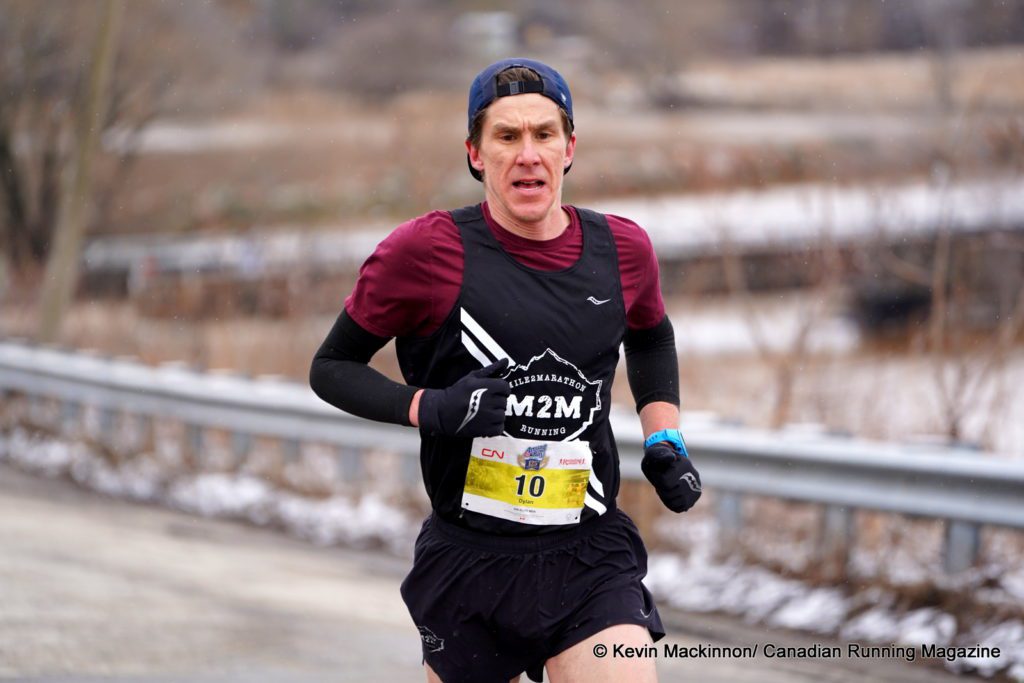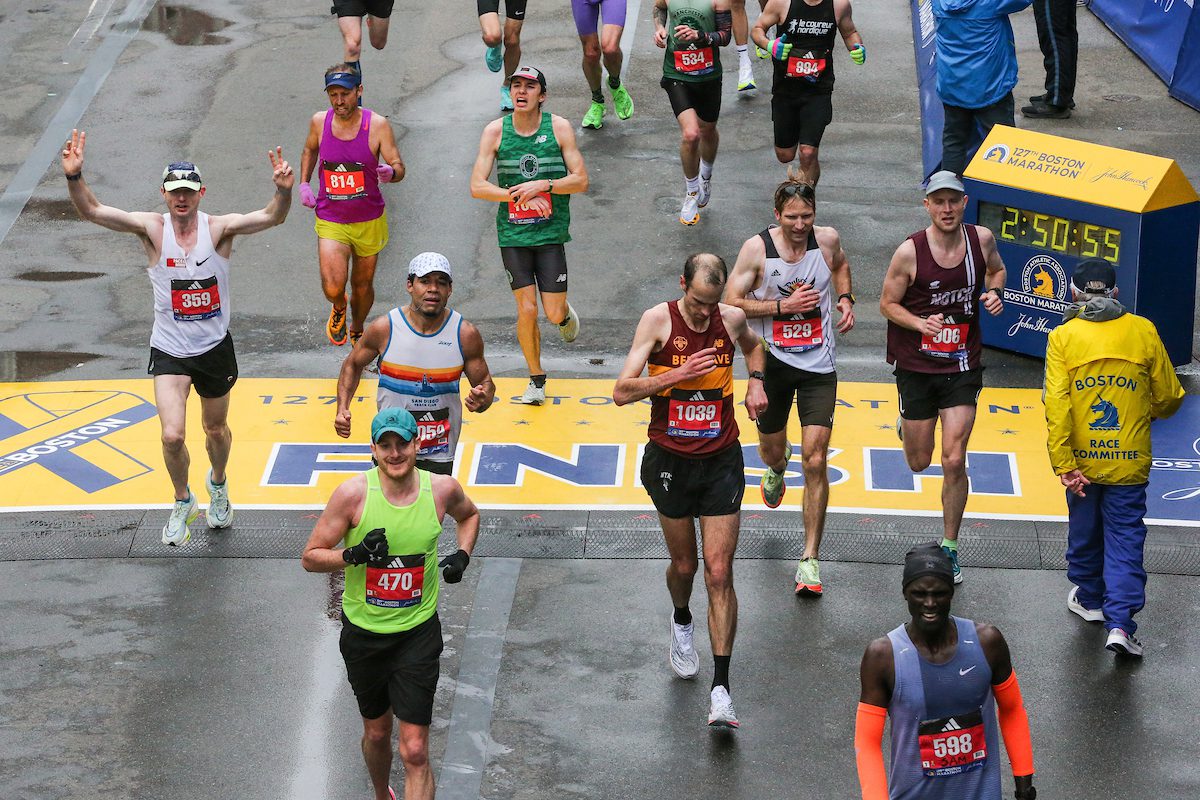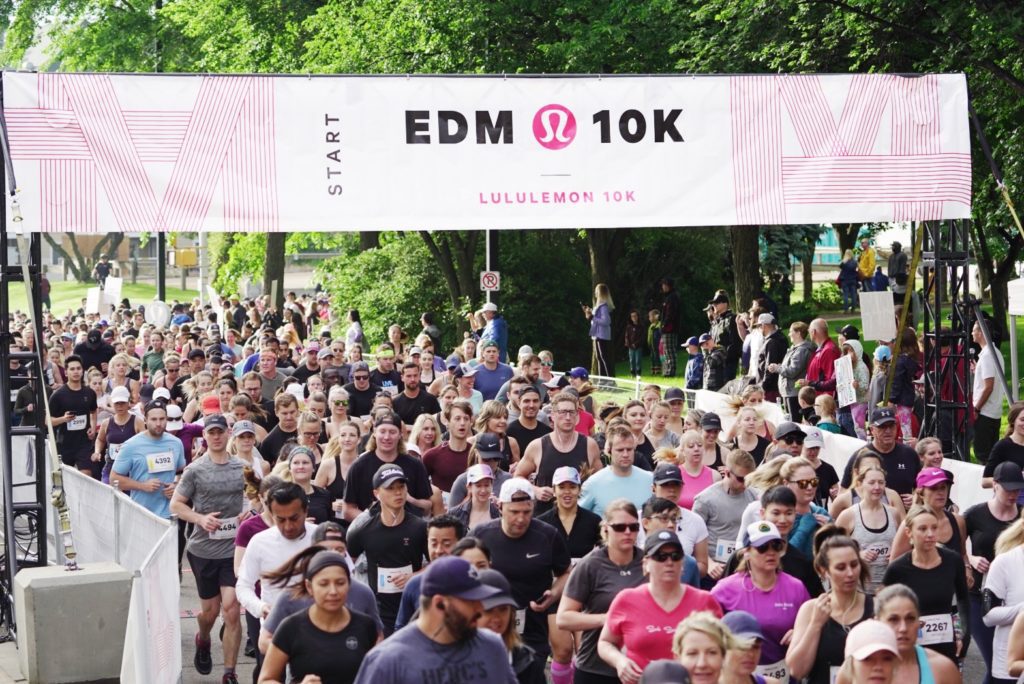Do you like to race during your marathon build, or do you prefer to stick to the training plan and save the hard effort for race day? If you’re currently training for a marathon (the Boston Marathon on April 15, for example), you might wonder which approach is better. We spoke to Ottawa-based Mile2Marathon coach and 2012 Olympic marathoner Dylan Wykes about the benefits and drawbacks of racing during your marathon build.
The benefits of the pre-race race
Wykes says racing during a marathon build can have several benefits, and he encourages it. One reason is it allows runners to establish a baseline for their fitness. This is particularly useful at the beginning of a marathon training program, as it helps guide the upcoming training block. Racing during your marathon build can also be valuable for mental preparation. “I find that it can be good for people to go through the routine of racing and be reminded of simple things like pre-race nerves, and managing anxiety when running in a group,” says Wykes. “These are little things, but they are often forgotten when we just train for 12 to 16 weeks without any racing.”

Wykes also likes to have his athletes race during their marathon build as an opportunity to get in a hard, sustained effort in a race situation, which leads to potential performance gains.
What distance should you race?
“The most common distance people race is a half-marathon, and I find this works well from six weeks to three weeks out from their marathon,” Wykes says. “A 10K can also be a good hard effort that results in some good performance gains.”
How hard should you race?
To get a clear assessment of your fitness level, Wykes believes that pushing yourself to race the distance at maximum effort is the best approach to see where you are at. This method can provide a significant training stimulus that can also align with your marathon training regimen.

Is it OK not to race during your marathon build?
Wykes highlights that the decision to race during a marathon build depends on the individual athlete, their goals and their experience level. “If you look to a lot of the world’s top marathon runners at the moment, they are not often racing tune-up races,” he says, “choosing instead to remain in heavy training.”
He emphasizes, though, that these are the most experienced athletes in the world, who know pretty clearly what sort of shape they are in and who don’t need reminders of how to race. Less experienced runners can often benefit from some practice ahead of the big day.

At what point in your marathon build should you race?
Wykes strongly advises against racing within two weeks of your goal marathon. The recovery from a tune-up race can be unpredictable, and it’s not worth the risk of interfering with the taper phase, which is very important in your preparation. Racing earlier in the build-up is acceptable, as long as runners are realistic about their goals and adequately prepared.
Many runners use Around the Bay 30K, as a tune-up for the Boston Marathon in April. Wykes has seen this go well and go poorly. “30K at, or close to, marathon race effort is about the longest training run I’d have anyone do,” he says. “So, running 30K at faster than marathon effort, three weeks out from Boston, can be risky. The folks that I’ve seen do it successfully have used Around the Bay as their final dress rehearsal for Boston, and kept the effort at close to marathon race effort, as opposed to going all out over the 30K distance.”

The bottom line
When deciding whether to race during a marathon build, Wykes says it’s all about balancing what the race will achieve for you (both physically and mentally) against the demands of recovery. He notes that sometimes racing during a marathon build might mean missing out on a week of regular training and one or two key long runs while you recover from the race, so it can be tough to decide which is more important–the race or the training.
“Everyone recovers from racing at different rates, so it’s really hard to predict what will be beneficial versus what is going to be detrimental,” says Wykes. “But you have to consider the entirety of the buildup.”
Ultimately, the choice to race or not should be based on what will best contribute to achieving your desired performance in the marathon.

